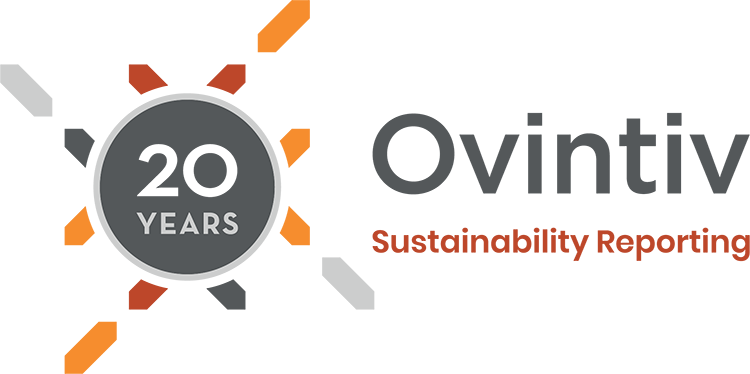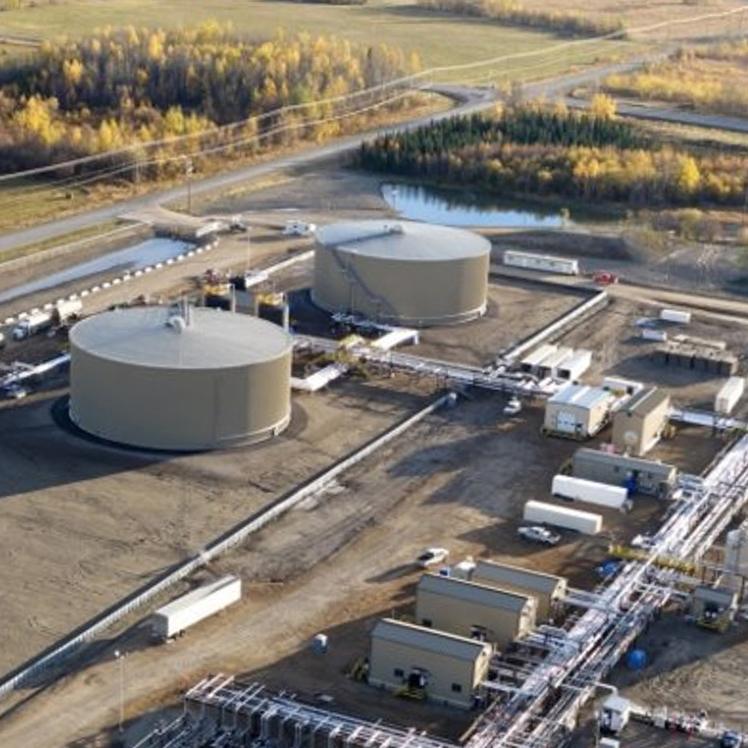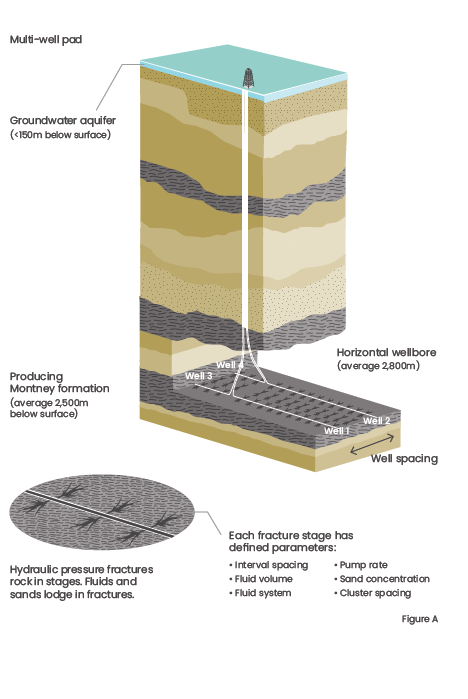WATER STEWARDSHIP
We manage water efficiently, taking responsibility for the use of this valuable resource. Although access to water and water scarcity are global issues, we tailor our water management approach to address local and regional concerns.
Ovintiv’s water management program considers location, resources, regulations, water stress, cost and operational need, when planning water solutions by site and operating area. We recognize that water sources vary by region and no single water management approach works for all areas.
Alternative
Water Use
We are committed to finding and using alternative (non-fresh) water sources when feasible for our activities. In our Permian and Montney operations, we have water hubs — facilities that efficiently collect, treat and reuse produced and flowback water. Reusing water reduces our reliance on surface and freshwater sources and improves the efficiency of our water handling.
Fresh Water Intensity
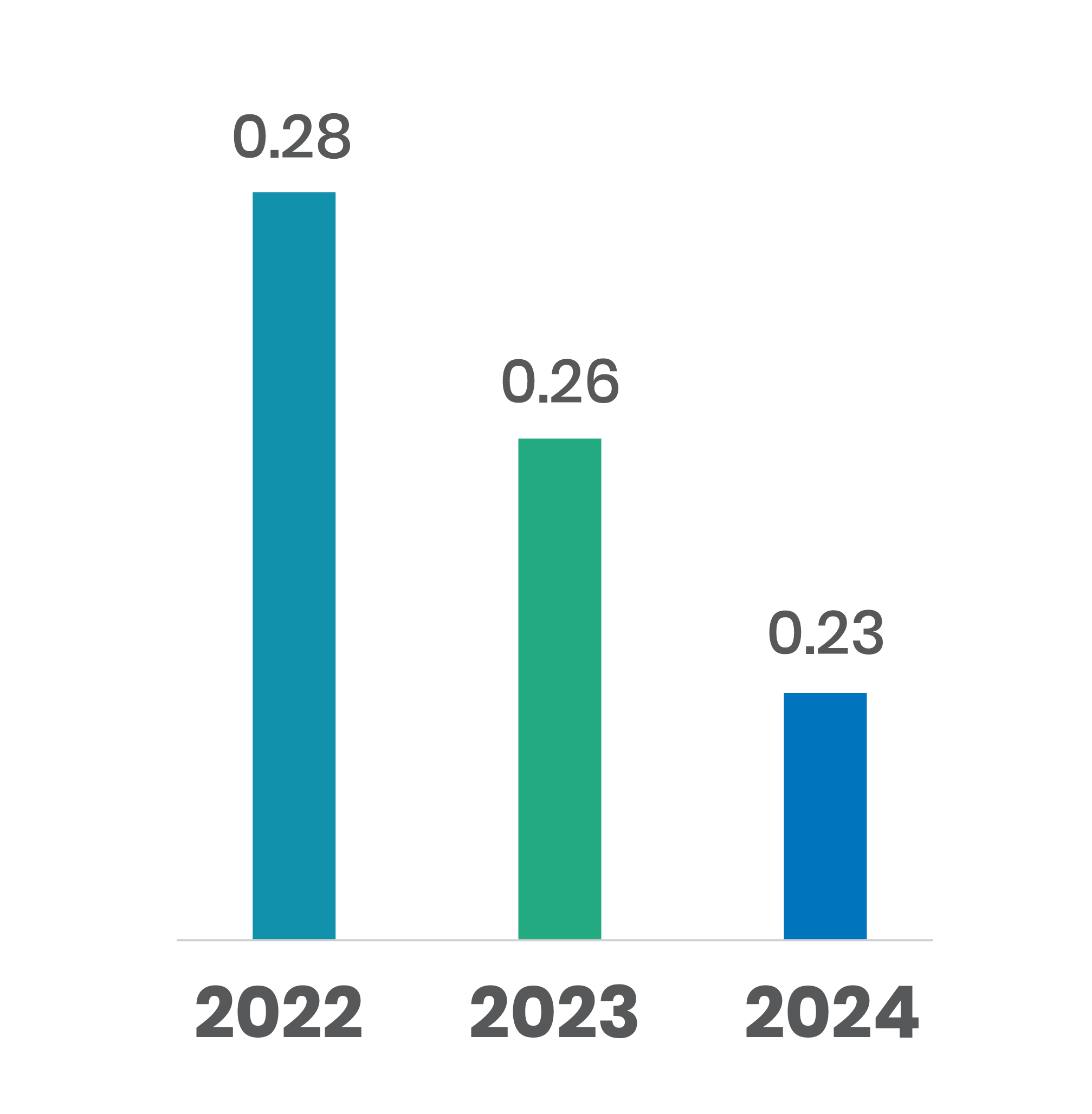
Fresh water consumed (bbl)/Gross annual production (BOE)
Water Recycle Rate
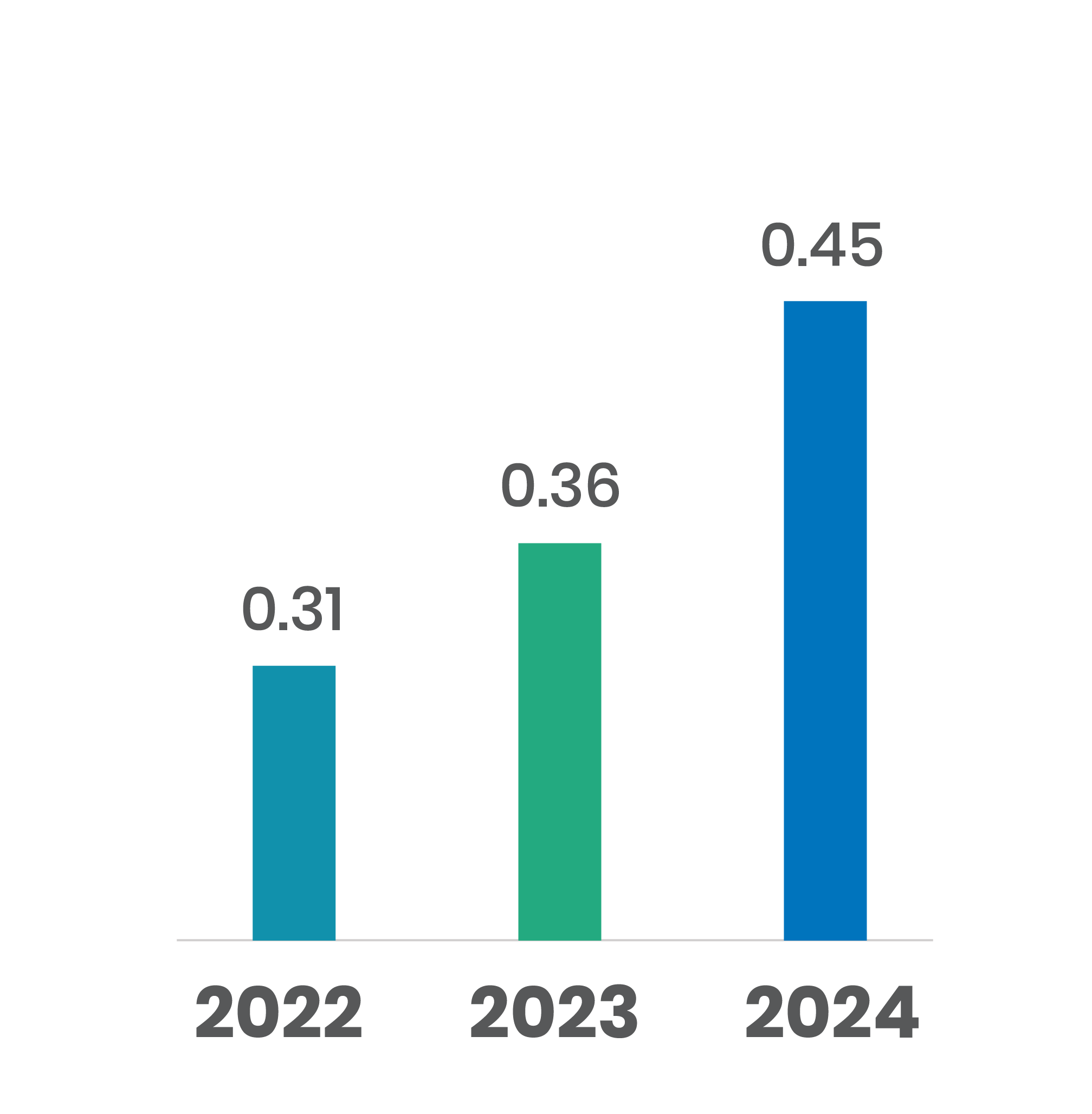
Recycled water (bbl)/total water consumed
Operating recycled water infrastructure is often less expensive than freshwater and avoids the need for wastewater injection. We are in the early stages of utilizing recycled water for our hydraulic fracturing operations in the Anadarko Basin. In the Anadarko Basin, we are partnering with Iofina Resources to isolate iodine from our produced water. This approach reduces waste and creates a stable source of iodine for Iofina Resources, reducing their need to drill wells.
Optimizing fracs to reduce water usage
Our Canadian Operations team has dedicated Frac Supervisors who monitor hydraulic fracture treatments via satellite from a centralized command center. The Supervisors optimize each fracture stage in real-time by reducing water volumes, while placing the designed sand volumes, which reduces the duration and cost of the operation. In 2023, hydraulic fracturing water volumes were reduced by approximately 15% through this initiative, with an additional 6% reduction in 2024.
Permian Water Recycling Successes (since 2017)
>10 Billion
gallons of
water recycled
~240 Wells
completed with over
90% recycled water
>815 Million
gallons of recycled water storage and transfer capacity built
Benefits of Water Resource Hubs
Our water resource hubs in our Canadian operating area are closed-loop water recycling systems that run on hydropower. Produced water from our operations is stored in subsurface geological reservoirs, recycled at our water hubs then transported via underground pipelines to our operations, eliminating the need for any produced water ponds or transport infrastructure at the surface. Since the hubs started operating in 2016, we have conserved approximately 1.7 billion gallons of freshwater, equivalent to the average annual water use of approximately 12,000 households. Through innovation and continued focus on water sustainability, we recently upgraded one of our water hubs with a water friction reducer system that allows us to deliver up to 50% higher rates of recycled water to our operations, conserving an additional 55 million gallons of freshwater in 2024 alone, equivalent to the average annual water use of approximately 370 households.
In addition to the positive community impact through water conservation, the hydroelectricity-powered water hubs have also allowed us to reduce emissions and noise compared to other fossil fuel-powered alternatives. Our reliable pipeline infrastructure used for transporting water has eliminated nearly 235,000 water hauling truck trips since the hubs started operations.
Our Montney water resource hubs also uniquely position us to support overall industry water demand. We are currently partnering with industry peers to develop water sharing initiatives to mitigate freshwater use by utilizing recycled water from our water hubs. This effort will be important in alleviating pressure on freshwater sources in times of shortages or droughts and will directly contribute to the sustainability goals of industry.
Water Stress Assessment
Our commitment to finding and using alternative water sources and our ability to recycle water, help us address water stress concerns within our operating areas. Our team monitors sites and actively works with landowners to address water concerns and to review water management plans. Using the World Resources Institute (WRI) Aqueduct Water Risk Atlas, we determined that for the year ended December 31, 2024, approximately 74% of the counties where we operate have medium-to-low water stress levels.

Protecting Groundwater
Much of Ovintiv’s water use occurs during completions activities. The goal of hydraulic fracturing is to enhance hydrocarbon recovery by creating pathways for the oil and natural gas trapped in the rock to flow through the wellbore to production equipment at the surface. This controlled operation pumps a mixture of primarily water and sand through the wellbore to the targeted formation at a high pressure in multiple intervals or stages. Our wells are designed with advanced planning and engineering to protect groundwater and freshwater zones.
In all Ovintiv operations, rigorous water management and groundwater protection are vital parts of this process.
- An impermeable steel casing system prevents fluids from migrating from the wellbore.
- Monitoring the integrity of the casing and cement system through field inspection and wellbore logging ensures real-time response.
- Pressure testing the wellbore ensures integrity. We pressure test before we begin completions and during each fracturing stage.
Any flow of fluids into non-targeted areas would be detected immediately by a sudden loss in pressure and operations would be halted.
Responsible Products
We continue to build upon our detailed understanding of the chemicals used in the completions process to ensure we use the most responsible hydraulic fracturing fluid formulations and fluid management practices available.
Hydraulic fracturing processes are strictly regulated by various state or provincial government agencies. These regulations include keeping Safety Data Sheets that detail the ingredients used in hydraulic fracturing fluid at each location. U.S. and Canadian regulatory bodies establish standards for the disclosure of this information, including the protection of trade secrets and confidential business information. We report non-proprietary ingredients through the FracFocus chemical disclosure registry.
Ovintiv’s Responsible Products Program provides guidance on managing additive and chemical use in hydraulic fracturing to comply with regulations and mitigate potential environmental and health impacts. All hydraulic fracturing fluid products we use are assessed for potential impact to the environment and human health using generally accepted toxicological criteria.
We also encourage our suppliers to improve their public disclosure of fluid formulations and to advance the development of more responsible fluid additives and test new technologies that reduce environmental exposure and risk.
Ovintiv prohibits the use of hydraulic fracturing fluid products containing:
- Arsenic
- Benzene
- Cadmium
- Chromium
- Diesel
- Lead
- Mercury
- 2-Butoxyethanol (2-BE)
- Other heavy metals
